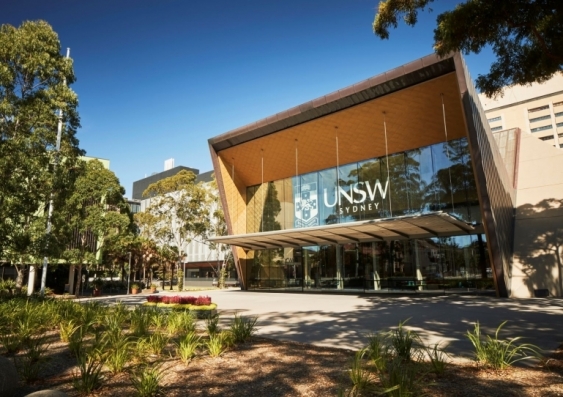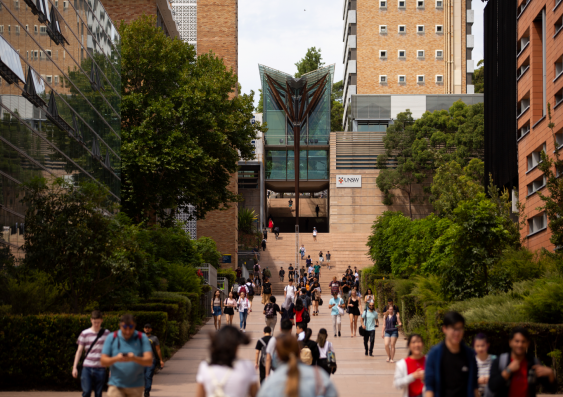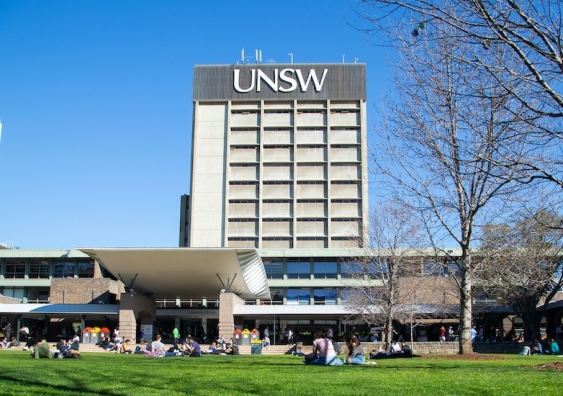Eight UNSW researchers named ARC Future Fellows for 2024
2024-07-31T14:58:00+10:00

$8.7 million in funding has been awarded to UNSW mid-career academics.
UNSW Sydney
The Fellows have secured more than $8 million for projects in science, engineering, business, the humanities and law.Â
UNSW Sydney academics from a range of disciplines have received . The eight researchers will receive more than $8.7 million in funding for projects ranging from investigating plant genetics to design problems in microeconomic theory.
Future Fellowships reflect the Australian Government’s commitment to excellence in research by supporting excellent mid-career researchers to undertake high-quality research in areas of national significance. Â
UNSW Deputy Vice-Chancellor Research & Enterprise Professor Bronwyn Fox congratulated the University’s 2024 Future Fellows.Â
“We are immensely proud of our mid-career researchers from science, engineering, law, business and the arts who have received Fellowships. From projects predicting how the environment affects chemical reactions, to explaining how the military rules through constitutions in authoritarian regimes – it’s wonderful to see such a broad range of issues being investigated among the eight UNSW projects,” Prof. Fox said.
UNSW’s successful applicants are:Â
Professor Melissa Crouch, from UNSW Law & Justice, has received $1,205,000 to investigate the legal challenges the military poses to constitutional democracy in Asia and other regions. The project will develop research to explain how the military rules through constitutions in authoritarian regimes. Outcomes will benefit Australian policymakers, international organisations committed to advocacy for constitutional democracy, and international scholarship.
Dr Selene Fernandez Valverde, from UNSW Science, has received $983,000 to investigate plant genetics and epigenetics. The project aims to study plant RNA binding proteins and RNA structures to understand how they work together and change in closely related species over time. It will help create synthetic regulatory RNAs to potentially develop plants that are market-friendly and resistant to pests and extreme climates.
Associate Professor Junming Ho, from UNSW Science, has received $988,000 to research ways to predict how the environment affects chemical reactions using advanced computational chemistry techniques and machine learning. If successful, chemical modelling could become a key driver for the design and discovery of new chemicals, medicines and materials. This will benefit Australia's chemicals and pharmaceuticals industries as time-consuming experiments are increasingly replaced by computer-based screening in the future.
Professor Anton Kolotilin, from UNSW Business School, has received $1,195,600 to investigate design problems in microeconomic theory, including the design of disclosure rules, regulatory policies, and decision-making processes. The project reveals a common mathematical structure behind these problems and develops tools to unify and expand classic theorems. By applying these tools to areas like digital platforms, consumer privacy and social networks, the project aims to help design fair and effective economic policies.
Dr Georgios Konstantinou, from UNSW Engineering, has received $1,066,000 to investigate low-inertia electricity grids that rely heavily on power electronics converters. The project aims to develop methods, tools and new ways to measure stability for these types of power systems. The results will improve grid reliability, support the integration and management of renewable energy, help reduce carbon emissions and promote growth in the energy sector.
Dr Hoang Phuong Phan, from UNSW Engineering, has received $1,046,500 for a project that aims to develop transparent, flexible 3D Micro-electromechanical Systems (tiny devices that combine mechanical and electrical components on a single chip) that connect electronics with 3D cell cultures such as organoids and spheroids. Working alongside existing Australian technologies for organ-on-chip and tissue engineering, the project will provide tools to explain biological mechanisms clearly, such as organ development and disease evolution, as well as to test the efficacy of new treatments, reducing the need for animal testing in medical research.
Professor Sophie Primig, from UNSW Science, has received $1,205,600 to investigate built-in 3D microstructural gradients into high-performance alloys. Commercially, this could lead to opportunities for domestic production of engineering parts, reducing reliance on international trade. Environmentally and socially, the project promises lower emissions through improved mechanical design and workforce training opportunities.
Dr Rachael Swain, from Arts, Design & Architecture, has received $1,066,800 to investigate visual dramaturgies in intercultural performances to demonstrate ways performance can enhance cultural diplomacy between Australia and Southeast Asia. Collaborating with Indigenous communities in the Kimberley and diasporic Southeast Asian communities, Visualising Intercultural Futures will create new intercultural performances to engage the public and strengthen Australia's position as a leader in performing arts.
Media enquiries
For enquiries about this story and interview requests please contact Yolande Hutchinson:
Tel: 0420 845 023
Email:












